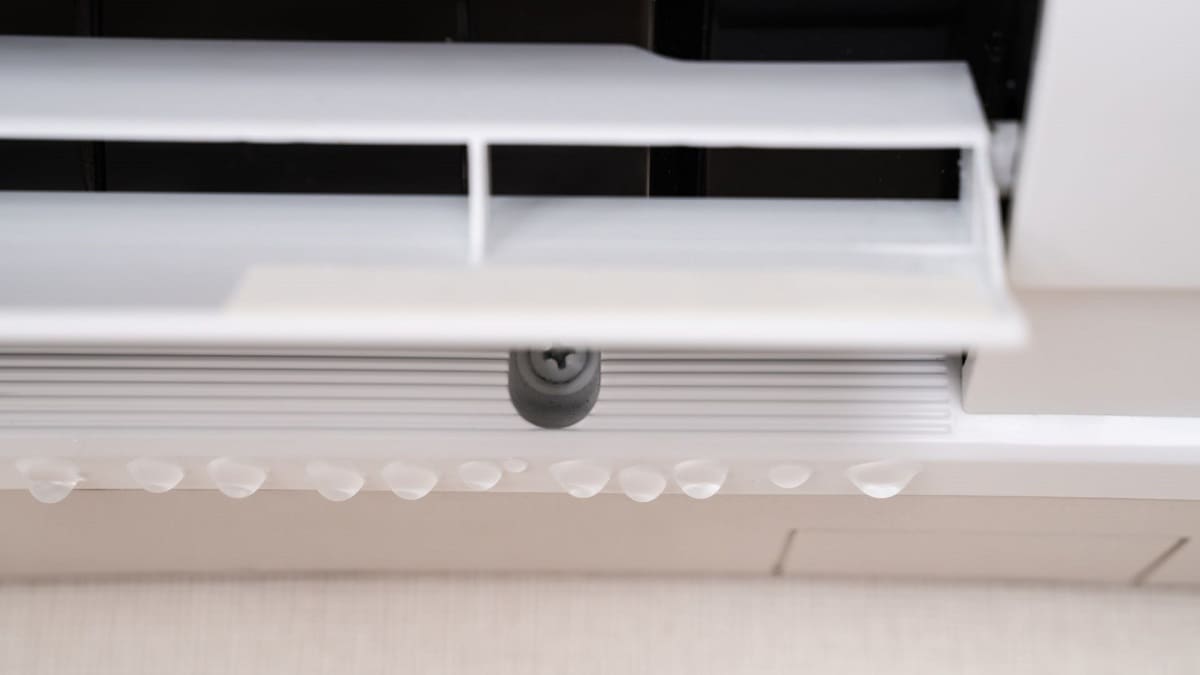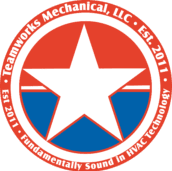How To Fix A Leaking Air Conditioner?
If your air conditioner is leaking water, it might be because the drain line is clogged. The drain line carries away the water that the air conditioner removes from the air. When it gets clogged with dirt or debris, the water has nowhere to go, and it can start leaking inside your home. You can try to clear the clog by using a small brush or a vacuum designed for this purpose. If you are unsure how to do this, it is best to call a professional to help.
Another cause of water leakage could be a problem with the AC's condensate pump. This pump helps to push water out of the unit. If it is broken or not working properly, water might back up and leak inside. Make sure to check the pump and replace it if needed. Regular maintenance can prevent these issues. It will keep your AC running smoothly.
What Causes A Water Leak?
To understand why water might be leaking, you need to know how an air conditioner works. Air conditioners don’t just blow cold air. They also take moisture out of the air to keep your home cool and dry. Inside the unit, there’s a part called the evaporator coil. This coil gets cold when the AC is on. When warm air from your house passes over it, the moisture in the air forms water droplets.
This water usually drips into a pan underneath the unit and is then drained out of your house through a pipe. If something blocks this pipe or the pan is damaged, the water can’t flow out properly. That’s when you might see water leaking from your air conditioner, showing that there’s an issue in this process.
Common Reasons For Water Leaks
Let’s look at some common reasons why your air conditioner might be leaking water:
1. Clogged Drain Line
One of the most common reasons is a clogged drain line. Over time, dirt, dust, and even mold can collect inside the drain pipe. This pipe helps remove the water your air conditioner creates. When it gets blocked, the water can't flow out like it should. Instead, it backs up and may spill out from your air conditioner. Cleaning the drain line can help fix this problem and stop the leak.
2. Dirty Air Filter
A dirty air filter can cause many problems with your AC, including leaks. When the filter is clogged, it restricts airflow over the evaporator coil. This can cause the coil to freeze. When the ice melts, too much water is produced, and the drain pan might overflow. A clogged filter makes the AC work harder. This can cause more problems over time. So, check and replace your air filter regularly. This keeps your system running smoothly and avoids water leaks. Regular maintenance can prevent bigger issues later.
3. Low Refrigerant Levels
If your air conditioner is low on refrigerant, the pressure inside the system drops. This can cause the evaporator coil to freeze. When the coil is frozen, it can't do its job well. As the ice starts to melt, the extra water overflows. Your air conditioner isn’t made to handle that much water. This can lead to leaks and puddles forming under the unit. If you notice this problem, it’s important to get it fixed quickly to avoid more damage to your system.
4. Damaged Drain Pan
The drain pan is where all the water from the evaporator coil goes before it is drained out of your house. Over time, the drain pan can rust or get damaged. This may cause water to leak before it can be drained. If the drain pan is cracked or rusted, it can't hold water as well, which leads to leaks. This can make a mess and even damage the area around your air conditioner. It’s important to check the drain pan regularly and replace it if you notice any cracks or rust spots. Fixing this can stop the water from leaking.
5. Improper Installation
If your air conditioner was not installed correctly, it might not be tilted at the right angle. The unit needs to be slightly tilted so that water flows into the drain pan and out through the drain pipe. If it’s level or tilted in the wrong direction, water can pool and leak out. This can cause water to drip inside your home, which can damage your walls and floors. It can also cause mold to grow. You may need a professional to check the installation and fix the tilt so the water flows out properly.
Steps To Take If You Find Your Air Conditioner Is Leaking Water
If your air conditioner is leaking water, don’t panic. Here are some simple steps you can take:
- Turn off the Air Conditioner: The first thing you should do is turn off the unit to prevent any further damage. This will help stop the water flow and avoid electricity problems. Make sure to turn off the power at the breaker switch if you can. This is very important to keep everything safe while you check the issue.
- Check the Air Filter: Look at the air filter. If it’s dirty, replace it. This might solve the problem if the filter was restricting airflow. A dirty air filter can block the flow of air in your air conditioner. When air can't flow properly, your air conditioner might not work well. Changing the filter can help the air conditioner run smoothly and keep the air in your home cool and clean.
- Inspect the Drain Line: Try to find the drain line and see if it’s clogged. The drain line is a small tube that helps remove the water from your air conditioner. Sometimes, dirt or gunk can block it, causing water to leak. If you’re comfortable doing it, you can try to clear the blockage yourself with a wet/dry vacuum. Make sure to turn off the air conditioner before you start. If you’re not sure or if the clog is too tough, it’s best to call a professional. They have the right tools to fix it safely.
- Examine the Drain Pan: Check if the drain pan is damaged or full of water. The drain pan is a part of your air conditioner that catches any extra water. If you see that it’s rusty or cracked, this could mean it’s not working properly. A damaged pan can cause leaks. It might need to be replaced to stop any further problems. Make sure to inspect it carefully to ensure it’s in good shape.
- Call a Professional: If you can't find or fix the problem, call HVAC Services. They have the tools and knowledge to find out what’s wrong with your air conditioner. A professional can look at the parts that might be broken or clogged. They’ll be able to diagnose the issue and get your air conditioner working properly again. This way, you can make sure your home stays cool and comfortable.

How To Prevent Water Leaks In The Future
To avoid dealing with a leaky air conditioner in the future, follow these simple tips:
-
Regular Maintenance
Just like a car needs regular maintenance, so does your air conditioner. Have a professional check your system at least once a year. They can clean the drain line, check the refrigerant, and ensure everything works. Regular maintenance helps catch small problems before they turn into big issues. It can also make your air conditioner last longer and run more efficiently.
-
Change The Air Filter
A clean air filter can prevent many air conditioner problems. It helps your air conditioner work better and keeps the air in your home fresh. Change the filter every one to three months, depending on how often you use your system. If you have pets or dust, you might need to change it more often. A dirty filter can block airflow and make your air conditioner work harder.
-
Check The Drain Line
You can help prevent clogs by regularly checking the drain line for blockages. Look at the line to make sure it’s not blocked by dirt or other stuff. Pour a small amount of vinegar down the line every few months. This will help clear away any build-up. Vinegar helps to keep the drain clean and running smoothly. If you notice any slow drainage, this could be a sign of a blockage. Fixing it early can save you from bigger problems later.
-
Keep The Area Around The Unit Clear
Make sure there’s enough space around your air conditioner for air to flow freely. This will keep the system efficient and prevent issues, like frozen coils. If there are things like plants, boxes, or furniture close to the unit, move them away. This extra space allows your air conditioner to get the air it needs to work properly. It also helps avoid issues that could make the system break down or not work well.
You Should Consider Glycol Heating And Cooling Systems?
For those wanting to upgrade or replace their AC, a glycol heating or cooling system might be a good option. These systems are energy-efficient. They help prevent issues, like freezing coils, which can leak water. Glycol systems use a special liquid. It keeps the system running smoothly in extreme cold or heat.
Glycol systems are often used in big buildings, but you can have them in your home too. If you live in a cold place or if your air conditioner freezes, you might want to switch to a glycol system. This is because glycol systems can handle very hot and very cold temperatures better. They use a special liquid that doesn't freeze easily, making them a good choice. In Denver, local glycol system repair specialists can help you. They can advise if this is the right choice for your home. They can also help you install it and keep it working well. This keeps your home comfy all year. You won't worry about your AC freezing anymore.




















